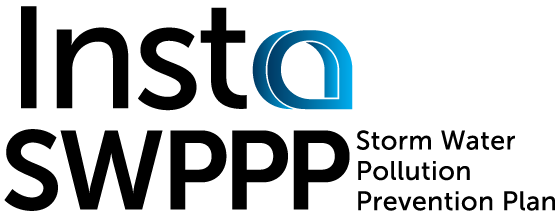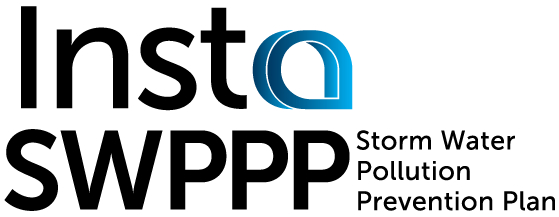SWPPP FAQ
-
A Stormwater Pollution Prevention Plan, or SWPPP, is a detailed document that explains how a construction site will prevent pollutants from contaminating nearby water sources through stormwater runoff. The SWPPP serves as a roadmap for managing stormwater, with the goal of stopping sediment, chemicals, and debris from being carried by rainwater into rivers, lakes, and streams.
Developing and following an SWPPP is crucial because the Texas Commission on Environmental Quality (TCEQ) is very serious about preventing stormwater pollution. In fact, the TCEQ can impose hefty fines of up to $32,500 per day for each violation. This means that having an SWPPP is not just a good idea for Texas construction sites; it's a legal requirement to help control the release of contaminants into the environment.
For more comprehensive information about What is SWPPP, Please refer to our guide here.
-
TxDOT requires a Stormwater Pollution Prevention Plan (SWP3) for all construction and maintenance projects disturbing one or more acres of soil to comply with the TPDES Construction General Permit. Moreover, even projects disturbing less than one acre must have an SWP3 if they have permit requirements or commitments dependent on stormwater quality controls. This applies to both stand-alone projects and those that are part of a larger common plan of development. However, if a project does not disturb any soil and has no stormwater-related commitments, then it does not require an SWP3.
-
In Texas, the need for a Stormwater Pollution Prevention Plan (SWP3) depends on the size of the construction site:
For sites under 1 acre:
No SWP3 coverage or related procedures are necessary, unless the project is part of a larger common plan of development that will ultimately disturb one or more acres.
For sites between 1 and 5 acres:
Implementing an SWP3 is mandatory, as is posting a Construction Site Notice (CSN) on-site. Additionally, a copy of the CSN must be sent to the local Municipal Separate Storm Sewer System (MS4) operator.
For sites over 5 acres:
Comprehensive requirements include developing an SWP3, submitting a Notice of Intent (NOI) and Notice of Termination (NOT) to the TCEQ, and posting a Construction Site Notice (CSN) on-site. Furthermore, a copy of the NOI must be sent to the local MS4 operator.
Regardless of site size, if the project is part of a larger common plan of development that will ultimately disturb one or more acres, an SWP3 is required.
Please refer to our knowledge base about when is a SWPPP required
-
Noncompliance with stormwater regulations can result in severe consequences for construction site operators in Texas. The TCEQ enforces the Clean Water Act and the TPDES Construction General Permit, and failure to comply can lead to hefty fines of up to $32,500 per day, per violation. Moreover, noncompliance can result in legal action, project delays, and damage to reputation. In some cases, the TCEQ may even require the construction site to halt operations until compliance is achieved. Therefore, it is essential for construction site operators to understand and adhere to stormwater regulations and promptly address any issues of noncompliance to avoid these costly consequences.
-
SWPPPs should be updated whenever there is a change in design, construction, operation, or maintenance that significantly affects the discharge of pollutants. Moreover, if inspections or investigations by site operators, local, state, or federal officials indicate that the SWPPP is ineffective in minimizing pollutants, updates must be made. Additionally, if a prohibited discharge occurs, the SWPPP must be modified to include appropriate BMPs. Therefore, it is crucial to keep the SWPPP current and reflect any changes on-site, with revisions made within seven calendar days following an inspection. By regularly updating the SWPPP, construction site operators can ensure compliance with stormwater regulations and minimize the risk of pollution.
-
At Instaswppp we have a team of trained experts that can get your certification underway fast and efficiently. A complete SWPPP can be ready in as little as 3 business days, and as little as 2 business days for a NOI.
What We offer
Preparing SWPPP:
$525 (from site plans)
Send us your site plans and we will compose a Storm Water Pollution Prevention Plan (SWPPP) specific to your construction activities. These guidelines and management practices will closely adhere to the TCEQ’s suggested storm water pollution prevention guidelines.
Notice of Intent (NOI):
$400 (permit fee included)
Once a Stormwater Pollution Prevention Plan is in place, we will submit the necessary documents and forms on your behalf to the Texas Commission of Environmental Quality (TCEQ) to secure a Notice of Intent (NOI) permit for your development site. This fee includes the state assessed permit fees for the NOI.
Notice of Change (NOC): priced upon request
Notice of Change must be submitted when changed site plans increase the amount of acreage to be disturbed (less disturbance does not need to be submitted) or the area disturbed, a change in operator occurs, or other information originally provided in the NOI has changed.
Notice of Termination (NOT):
$25 with NOI preparations
At the conclusion of your development project, a Notice of Termination must be filed with TCEQ to terminate your permit/NOI for the development site and clear all TCEQ permits. We’d be happy in assisting you with closing your permits. The above price is listed per location, with original NOI submission.
How long will processing my SWPPP take?
✅ Only 3 business days for a complete SWPPP
✅ 2 business days for a NOI


